The next frontier for AR hardware is the consumer headset, and tech companies of varying size and tenure are working hard to strike the right mix between comfort, cool factor, and cost. How these companies handle the hype and flow of information vary wildly.
Magic Leap is notoriously secretive about its forthcoming device, but it's CEO is happy to wax rhapsodically about its philosophy.
Apple is also a proud flagbearer for AR as the future of computing (it was also once as secretive as Magic Leap), but nowadays the company can't keep its supply chain quiet.
Meanwhile, Vuzix, which may be closer than either of them to shipping consumer smartglasses, isn't as shy about what it has in development, though its execs may pretend they are.
Magic Leap AR Plans Remain Under Wraps, but Not Its Vision for the Future
When you run an augmented reality company worth billions of dollars, backed by some of the biggest names in tech, and you haven't even released a product yet, even late night tweetstorms rank as worthy of dissection. Such is the case with Rony Abovitz, CEO of Magic Leap, who decided to spend a little time on Twitter on Wednesday to outline his vision of the future of immersive computing.
Things must be busy over at Magic Leap, because it looks like no one told Abovitz that he now has 280 characters to play with, and didn't need to parse out his thoughts in 14 different tweets. Nevertheless, his latest mysterious missive will only add to the continued low-level hype surrounding the company, which now has almost $2 billion in investment money from the likes of Google, Alibaba, J.P. Morgan, and Fidelity Management, among others.
"Spatial computing is easily the next 100 years. What will matter most is our humanity and empathy to each other," said Abovitz, who then immediately teased us with the following anecdote. "Fun thought for the night: when we have a new visitor, most come by wondering if Magic Leap is real. I think almost everyone leaves asking 'what is reality?'"
More on how Magic Leap plans to tackle the future in this breakdown of Abovitz's tweetstorm.
REALITY BITES: What does Snapchat's move to open up Context Cards to sponsored lenses and geofilters mean for its advertising partners?
"Advertisers will now be able to track more data than just engagement, which is huge for insight into what's working. This data will allow brands to A/B test creative ad campaigns and learn which ads may be better for awareness vs. actual conversions," said Andrew Selby, VP of client services at Strike Social. "Snap's implementation of this feature proves the social network is committed to all audiences and is working to mature. In order for Snap to catch up to other networks' ad capabilities, it will need to continue listening to the market."
Apple Looks to Tango-Like Sensors for iPhone as Its Next AR Step
Apple CEO Tim Cook told us that augmented reality would change everything, and now we have a better idea of exactly what he meant.
A new report reveals that Apple is already hard at work on a rear-facing 3D sensor for the iPhone that would vastly expand the iPhone's AR capabilities by allowing it to interact with the rest of the world in AR beyond selfies and Animoji.
Citing anonymous sources familiar with the development, Bloomberg claims that Apple's new rear-facing sensor would not use the same front-facing, TrueDepth camera system currently employed by the iPhone X. Rather, it would use a time-of-flight sensor, which emits laser pulses that bounce off real objects and then measures the time it takes those pulses to travel between the sensor and those objects, establishing a rough physical map of the surrounding objects for the AR app to interact with.
More on what Apple's future with an even more AR-enhanced iPhone may look like.
REALITY BITES: Furniture retailers have enthusiastically latched onto mobile AR, in particular Apple's ARKit. Count Williams-Sonoma among them. The home furnishings company acquired AR and 3D app developer Outward, Inc. for $112 million in cash to enhance its own customer service offerings. The companies are familiar bedfellows; according to Recode, Outward previously developed the AR app for Pottery Barn, a Williams-Sonoma subsidiary.
Vuzix Teases Forthcoming Blade Smartglasses
Up until now, experiencing augmented reality through Vuzix's next-generation Blade 3000 smartglasses would have required a trip to a tech conference where the company has an exhibition booth.
Thanks to Paul Boris, the chief operating officer at Vuzix, you can now get a brief glimpse of the company's latest AR hardware experience. Boris recently posted his first ever video on his personal YouTube account, showing the AR view of an engineering unit. The video mirrors the Blade's display via tethering, so we don't actually get an appreciation for the first-hand experience, but we do get a sense of its user interface and functionality.
What does it look like? How much will it cost? When will we see it? Read on to learn more.
REALITY BITES: After a third consecutive quarter of revenue growth, investors and analysts are starting to take notice of Vuzix as a "pure play" in augmented reality. Stone Fox Capital has an in-depth analysis of Vuzix's performance and potential at Seeking Alpha. Contributor Mark Collins offers a similar take at Benzinga.
Every Friday, Next Reality reviews the latest headlines from the financial side of augmented and mixed reality. This weekly Market Reality column covers funding announcements, mergers and acquisitions, market analysis, and the like. Check out previous editions of Market Reality for more news you may have missed.
Just updated your iPhone? You'll find new features for Podcasts, News, Books, and TV, as well as important security improvements and fresh wallpapers. Find out what's new and changed on your iPhone with the iOS 17.5 update.




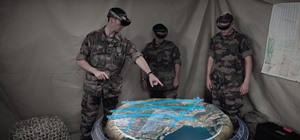
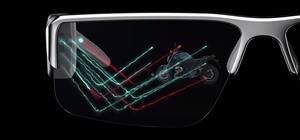

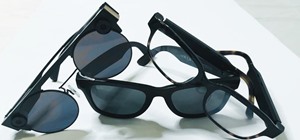





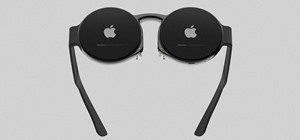



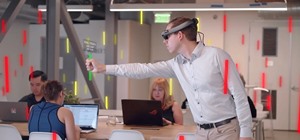
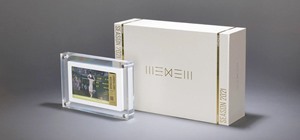

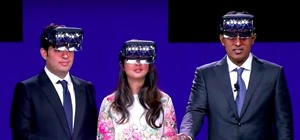


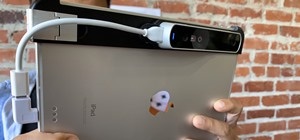
Be the First to Comment
Share Your Thoughts